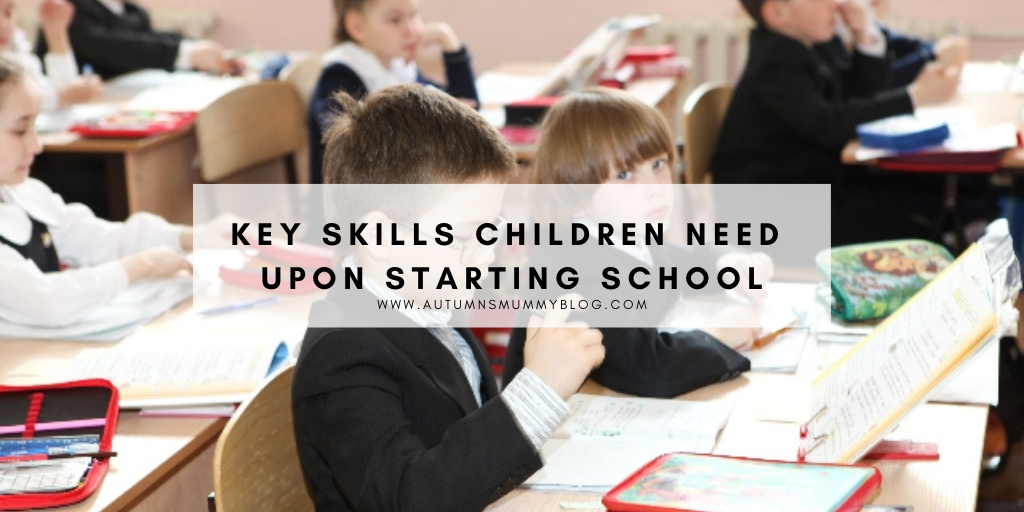Collaborative Post¦ When it’s time for your child to start school, they can still seem so young. You might wonder whether your child is really ready to start going to school full-time. The truth is that some children might be a little underprepared for school, especially if they haven’t learnt some key skills that will help them to be a little more independent. Children should have certain capabilities when they start school, and they are mostly skills that you can start to work on long before they turn four or five. You can start thinking about some of these essential skills when your child is a toddler and even younger.
If you want to prepare your child for school, take a look at some of these top skills that they should be able to grasp by the time they start.
Image from Pixabay – CC0 Licence
Motor Skills
Both gross motor skills and fine motor skills are important for children to develop from a young age. When they get to school, their motor skills will help them do everything from running in the playground to holding a pencil. One of the reasons that you should pay attention to the importance of learning activities for 2-year-olds is to develop their motor skills and prepare them for school as they get older. There are lots of things that help children develop their motor skills, including arts and crafts, playing with blocks, learning to ride a bike, and more.
Following Instructions
Children who are starting school need to know how to listen to and follow simple instructions. They should be able to listen to their teacher and complete the tasks that are asked of them, including tasks with several steps. There are lots of ways you can make sure that your child is able to do this at home. You can start giving instructions as soon as your child is able to understand them, asking them to do simple things. That could include doing small tasks around the house or taking care of their own things.
Talking About Feelings and Needs
Being able to talk about their feelings is a really useful skill for school starters. If they can express what they’re feeling, they can communicate more clearly with teachers and friends. They should also be able to express their needs, such as needing to go to the toilet or get a drink of water. These fundamental communication skills ensure your child is ready for the school environment and the growing independence and self-advocacy that it requires. You can encourage your child to share their feelings and to speak up when they need something, not just with you but with people they’re less familiar with too.
Image from Pixabay – CC0 Licence
Personal Care
Some personal care tasks are an important part of being ready for school. Children starting school should be potty trained and able to go to the toilet on their own. They won’t get help from teachers, so they need to be able to manage it themselves. They should also be able to get dressed and put their shoes on, especially as they might need to take off and put on a cardigan or jumper, or they might need to get changed for PE. These are skills that they can start to practise at home if you encourage them to be more independent and do things for themselves.
Social Skills
There are lots of different social skills that can benefit your child when they’re ready to start school. Being able to play well with others, share toys and other things, and both listen to and speak to others are all-important social skills. They should also be able to hear, understand and retell simple stories. There are lots of ways to work on social and communication skills. Spending time with other children, reading, and communicating with people of different ages could all help your child to improve their social skills.
Reading, Writing, and Numeracy Skills
Your child will learn to read, write and work with numbers at school. But that doesn’t mean they shouldn’t start learning some of these things before school. Having some basic knowledge of letters and numbers will help them get started. Many children starting school know how to count to 20 or 30 and know the letters of the alphabet. They might also be beginning to associate different sounds with letters and recognise some words, as well as write their own name.
Helping your child to gain the skills they need for school will give them the start that they need to keep learning.
Disclosure: This is a collaborative post.
